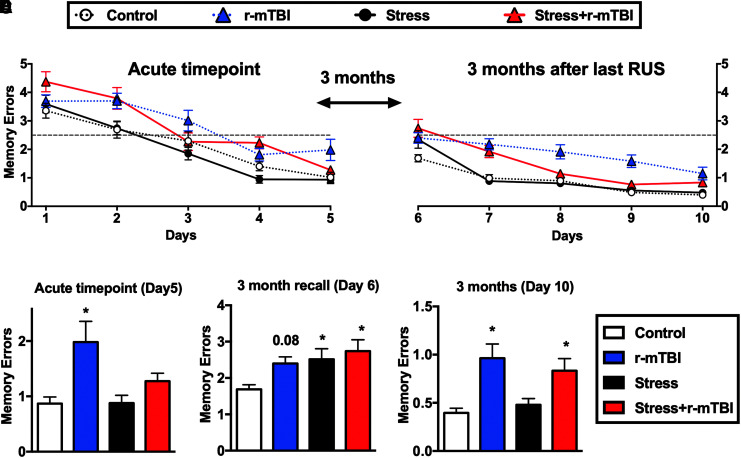FIG. 4.
Effect of stress and repeated mild traumatic brain injury (r-mTBI) on spatial learning and memory. The performance of each group during two separate 5-day training sessions in a Radial Arm Water Maze (RAWM) is depicted in (A) and (B). In the last trial at the acute time-point (Day 5), only animals in the r-mTBI group showed spatial memory deficits as evidenced by a significant increase in the mean memory errors relative to controls (C). All treatment groups showed increased mean memory errors relative to controls in the 3-month recall of learned memories (Day 6; D). A main r-mTBI effect was observed in the last trial at the 3-month time-point (Day 10) as animals in the r-mTBI and stress+r-mTBI groups showed increased mean memory errors relative to controls (E). Data in (A) and (B) were analyzed using repeated measures three-way repeated measures analysis of variance (ANOVA), while data in (C-E) were analyzed using a two-way ANOVA followed by two-stage linear step-up procedure of Benjamini, Krieger, and Yekutieli to correct for multiple comparisons (n = 9-11). Statistically significant discoveries versus the control group are denoted by “*”. The chance level (2.5 memory errors) is indicated by a dashed line in (A) and (B). Color image is available online.

